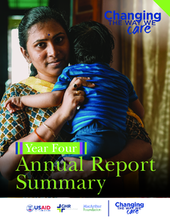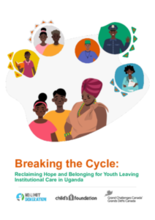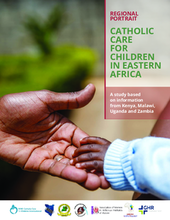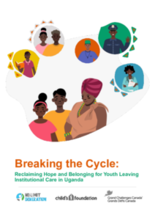This country page features an interactive, icon-based data dashboard providing a national-level overview of the status of children’s care and care reform efforts (a “Country Care Snapshot”), along with a list of resources and organizations in the country.
demographic_data
childrens_living_arrangement
children_living_without_bio
social_work_force
key_stakeholders
Key Stakeholders
Add New DataOther Relevant Reforms
Add New Datadrivers_of_institutionalisation
Drivers of Institutionaliziation
Add New Datakey_research_and_information
Key Data Sources
Add New DataThe Children Act (Uganda)
Country Care Review: Uganda
Prevalence and number of children living in institutional care: global, regional, and country estimates
The National Integrated Early Childhood Development Policy Action Plan (2016-2021) of Uganda
Catholic Care for Children in Uganda: A Family for Every Child - Findings from a Midterm Evaluation
Acknowledgements
Data for this country care snapshot was contributed by a consultant with the Data for Impact (D4I) Project at Palladium Group LLC.
Displaying 31 - 40 of 419
Changing the Way We Care (CTWWC) promotes safe, nurturing family care for children reintegrating from residential care facilities (often referred to as “orphanages”) and prevents child-family separation by strengthening families, reforming national systems of care for children, and working to shift donor and volunteer support away from residential care and toward family care alternatives.
A US couple has been fined ($28,000; £23,000) by a Ugandan court after they pleaded guilty to child cruelty and "inhumane treatment" of their 10-year-old foster child.
In this webinar, a new paper on strategies to prevent family separation is presented. Examples from Rwanda, Kenya, Uganda and Namibia are presented.
The objective of this webinar was to present the best practices learnt in the implementation of the youth wellbeing project which focused on integrated mental health and wellbeing support for youth and particularly young people with lived experience of care.
The objective of this webinar is to present the best practices learnt in the implementation of the youth wellbeing project which focused on integrated mental health and wellbeing support for youth and particularly Young People with Lived Experience of Care.
This UNICEF ESARO webinar explores the role of case management in care reform and examines strategies for effective case management from Kenya, Ghana and Uganda.
A group of talented young dancers from Uganda warmed hearts around the world after earning the coveted “golden buzzer” on Britain’s Got Talent.
This regional portrait describes Catholic-sponsored care for children in Eastern Africa using data from Kenya, Malawi, Uganda and Zambia. The first large study of its kind, it focuses on children who are particularly vulnerable—those at risk of or those who have been separated from their families. Many are in institutional care. This portrait also describes growing efforts, led by women and men religious, to ensure children can grow up in safe, nurturing families or family-like environments rather than institutions.
This is an introduction to the training series produced by Child's i Foundation and No Limit Generation and focuses on four key areas: trauma and stress, depression and suicidal thoughts, anxiety, and loss and grief.
This webinar provides an opportunity to share experiences on the transformation of residential care. The webinar will begin with an introductory presentation by Rebecca Nnep, Senior Technical Advisor, Better Care Network, who will shed light on emerging lessons and ongoing efforts/work done to ensure effective transitioning.




